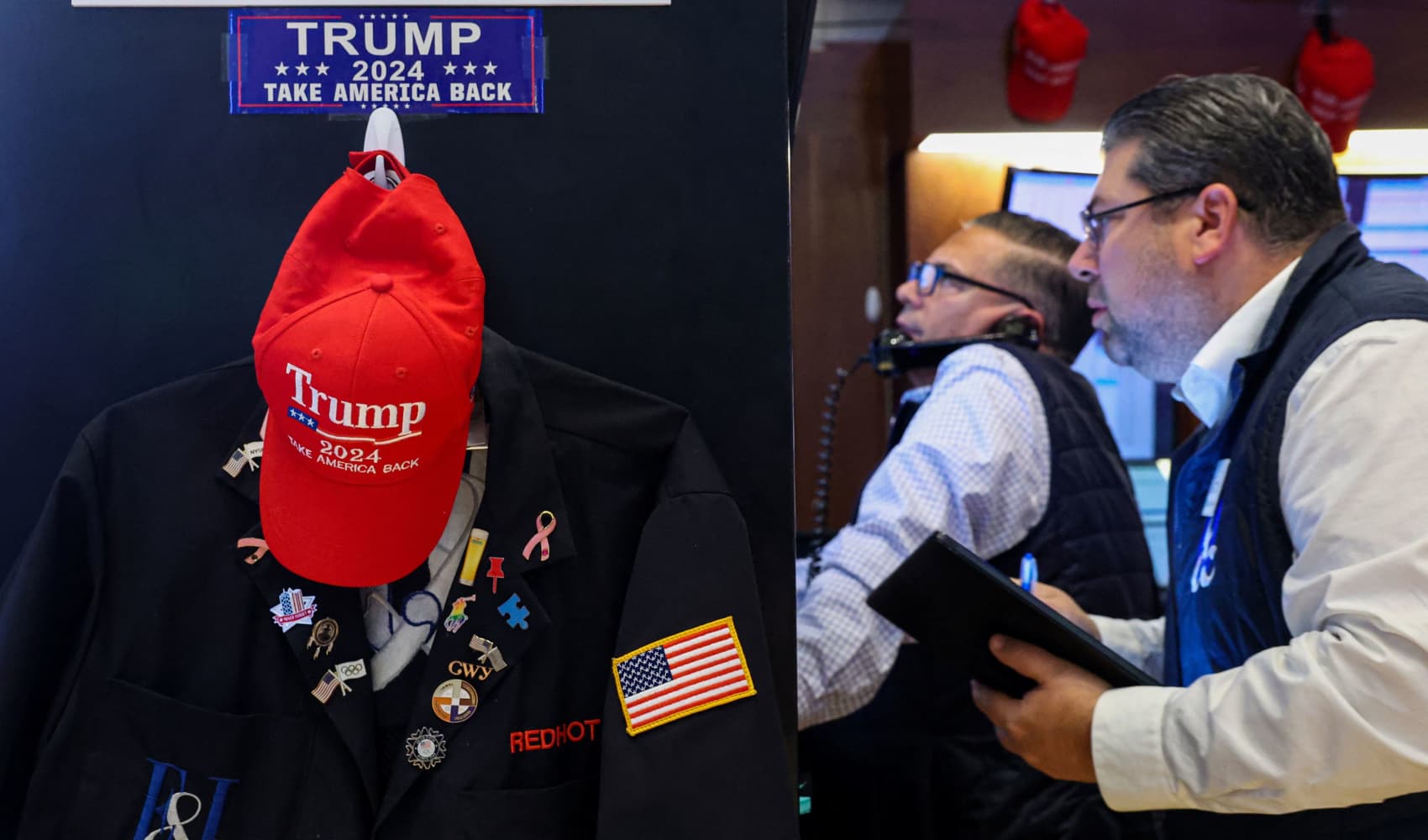
The Pandemic Has Upended Personal Finance Education in Schools
(State of financial education: Many money problems Americans face could have been avoided if financial literacy was taught earlier in school. That knowledge helps create a foundation for students to build strong money habits early and avoid many mistakes that lead to a lifelong of money struggles. This story is part of a series looking at the current financial education landscape in this country.)
In March of last year, Regina Watkins and her business education class of eighth grade students were right in the middle of a stock market game, part of a personal finance unit, when the coronavirus pandemic shut everything down.
"It was like we went to school on a Friday and we were told everything's going to be remote Monday," said Watkins, a teacher at West Lake Middle School in Apex, North Carolina.
After an adjustment period the business class was able to resume and finish the stock market game virtually. But it wasn't quite the same.
Get Tri-state area news delivered to your inbox. Sign up for NBC New York's News Headlines newsletter.
For one, Mike Molitoris, a wealth manager in Cary, North Carolina, who has volunteered to help teach a portion of the class for the last few years, wasn't able to finish out the semester because of the pandemic. He has three children of his own, who were all suddenly doing virtual school as well.
And, the students also usually participate in InvestWrite, a national writing competition offered by the Securities Industry and Financial Markets Association to schools that play its stock market game.
But this year, the switch to remote learning and the timing of the change made it difficult to give students the one on one time they needed, Watkins said.
Money Report
A shift in personal finance education
Personal finance education is one subject that's been negatively impacted by the coronavirus pandemic. And, it's an important topic in which students are likely already not getting enough knowledge. To that point, only 21 states require high-school students to take a course on personal finance, and few require it to be a standalone class, as opposed to being incorporated into another course.
In addition, many states offer personal finance education, but it is not mandatory. In 24 states, high schools must offer personal finance education, but it's not a requirement for students to take it.
That means some educators are already competing for students' attention or even participation in their personal finance classes. The pandemic has made it even more challenging.
"As somebody who's been doing a ton of virtual classroom visits and talking to teenagers, you know, you're hearing so much of the decline in effort and interest," said Yanely Espinal, director of educational outreach at Next Gen Personal Finance.
The trials of virtual school
While teachers and students across the country have adapted, the switch to virtual education has been challenging.
Educators have found that it's more difficult to engage students online, where there are more distractions and ways to evade class, than in person. In addition, virtual schooling shines a light on the different environments' students are experiencing at home.
"Virtual learning is not equitable for our children at all," said Lionel Hush, principal of Roosevelt Middle School in West Orange, New Jersey. While some children have a quiet space to devote to school, others may not and may face additional distractions, he said.
And, for the younger students at Hush's school, it's harder to get kids interested in money over a computer screen.
"This is new for children – a lot of our kids have no experience in it," said Hush, adding that for many middle schoolers, their idea of personal finance may end at getting $20 from a parent to go to the store.
"To gain their interest is a lot more challenging in the virtual world," he said.
Next Gen Personal Finance has worked hard to combat this in their educational materials, which are used in many schools to teach kids about money. This year, they've pivoted to providing games, resources and tools catered to a virtual environment for both students and teachers.
"As educators, we are constantly challenging ourselves to go back to that age and thinking 'what do you think is cool when you're 13, 14, 15, 16 or 17'?" Espinal said. "There are super high interest topics particularly in middle school and high school."
More from Invest in You:
A few days cost some businesses thousands on PPP forgivable loans
Disabled Americans could save their stimulus money in this account
Op-ed: Black women must make their own magic with their finances
This Wall Street veteran wants to bring diversity to corporate America
Other activities with older students worked better and tied in well with what was happening in real-time last year as the stock market tanked and the world shut down due to the coronavirus pandemic.
"It wasn't difficult to teach personal finance last year," said Maggie Wohltmann, a business educator at Livingston High School in Livingston, New Jersey. "When we got to the investing unit, the activities became so fun and engaging."
She used educational offerings from NextGen Personal Finance, which she's also done in the past, and found they were quickly converted for a remote setting.
One that her students particularly enjoyed was playing a game about timing the market, utilizing teams and breakout rooms and a virtual dice to roll to determine market volatility.
"It was different ways of still continuing the learning," she said. She was also able to find ways to make remote learning work to her advantage.
"I always wanted guest speakers to come in, but when you physically have people come to school it's a process," Wohltmann said. "Virtually this opened up doors and opportunities that I'd never considered, it's a lot easier for people to Zoom."
There was another silver lining to virtual school for Wohltmann. Because she was teaching from home, where her children, twins in fifth grade, were also learning, they started asking her questions about personal finance, including investing in the stock market.
Now, both children are set up with custodial investment accounts and investing in some funds and stocks with parental supervision, Wohltmann said.
"That never would have happened if we hadn't all been home together," she said.
Hybrid learning is extra complicated
As the pandemic continues, schools are again shifting their teaching models to accommodate children and parents. Now, instead of only virtual teaching, many schools are adopting hybrid models where some students are in class in person and others video conference in from home.
Some teachers are worried that hybrid learning will present further complications, including personal finance classes. While virtual learning isn't preferred compared to having students physically in a classroom, it's difficult to have both – some students in a class while others are on video chat, watching from home.
"Teaching hybrid is difficult with students in front of you and students on the computer at the same time," said Wohltmann, adding that it requires cooperation from everybody.
"I think some learners do better remote, but the majority do better in person," said Wohltmann. "But I will use many of the strategies and takeaways from this year."
Timely money lessons
This year especially, teachers saw the value of having personal finance education in schools, even if classes were disrupted by the pandemic.
Although it's been a tough year, students are watching the news and seeing more first-hand why personal finance education is important as many families have been impacted by the pandemic.
"Now the kids have a better lens into how their families were able to survive this financially and what they had to do to prepare for this," Hush said.
"This is what we prepare for, something you can't anticipate," he said. "To actually see it and conceptualize it is a much deeper educational impact on them."
SIGN UP: Money 101 is an 8-week learning course to financial freedom, delivered weekly to your inbox.
CHECK OUT: How to make money with creative side hustles, from people who earn thousands on sites like Etsy and Twitch via Grow with Acorns+CNBC.
Disclosure: NBCUniversal and Comcast Ventures are investors in Acorns.



